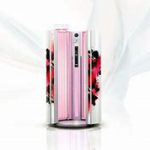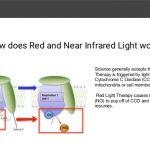Last Updated on 12 months by Francis
Negative ions are a fascinating topic, and there is much debate around whether they are a real thing or not. Some people swear by negative ion generators, claiming that they help to improve their health and well-being, while others are more skeptical.
Negative ions are a common topic in discussions related to air quality, health and wellness. While some people believe in their benefits, others are skeptical about their existence. In this article, we will explore the science behind negative ions and whether they are a real thing.
Contents
What are Negative Ions?
Negative ions are essentially atoms or molecules that have an extra electron. They are found in nature, particularly around waterfalls, thunderstorms, and the ocean. Negative ions are also created by certain types of machines, such as negative ion generators.
How do Negative Ions Work?
The theory behind negative ion generators is that they release negative ions into the air, which then attach themselves to positively charged particles, such as dust and allergens. This causes the particles to become too heavy to remain in the air, and they fall to the ground, effectively cleaning the air.
Negative Ions and Health
Some people claim that negative ions can have a positive effect on health, particularly when it comes to respiratory issues. There is some evidence to suggest that negative ions can help to improve lung function and reduce symptoms of conditions such as asthma and allergies.
The Science Behind Negative Ions
While there is some evidence to suggest that negative ions can have a positive effect on health, the science behind this is still not fully understood. Some studies have suggested that negative ions can help to reduce inflammation in the body, while others have found no significant effect.
The Limitations of Studies
One of the main limitations of studies into negative ions is that they are often small and poorly designed. This makes it difficult to draw firm conclusions about the effects of negative ions on health.
The Role of Placebo
Another factor to consider is the role of placebo. It is possible that some of the positive effects reported by people using negative ion generators are due to the placebo effect, rather than any actual physiological changes in the body.
The Skeptical View on Negative Ions
Despite the claims made by proponents of negative ions, there are many skeptics who believe that they are little more than a pseudoscientific fad. Skeptics argue that there is no solid evidence to support the use of negative ion generators, and that any perceived benefits are likely due to the placebo effect.
The Importance of Critical Thinking
It is important to approach any health claim with a critical eye, and to consider the evidence before making any decisions about treatment. While negative ion generators may be harmless, it is important to remember that they are not a substitute for proven medical treatments.
The Power of Nature
One of the reasons that negative ions are so popular is that they are associated with nature. Negative ions are found in abundance around natural sources of water, such as waterfalls and the ocean, as well as during thunderstorms.
The Benefits of Fresh Air
Many people believe that negative ions are a key component of fresh air, and that they can help to improve mood, reduce stress, and increase energy levels. Some studies have even suggested that negative ions can help to improve cognitive function, particularly when it comes to memory and attention.
The Role of Negative Ion Generators
Negative ion generators are machines that release negative ions into the air. They are often used in homes and offices to help improve air quality and promote a sense of well-being. However, there is some controversy surrounding the use of negative ion generators, particularly when it comes to their effectiveness and safety.
The Effect on Air Quality
One area where there is some consensus is in the effect of negative ions on air quality. Negative ions are known to attach themselves to positively charged particles, such as dust and allergens, causing them to become too heavy to remain in the air. This can help to improve air quality, particularly for people who suffer from respiratory issues such as asthma and allergies.
The Effect on Health
When it comes to the effect of negative ions on health, the evidence is less clear. Some studies have suggested that negative ions can help to reduce inflammation in the body, while others have found no significant effect. There is also some evidence to suggest that negative ions can help to improve lung function, particularly in people with asthma.
The Dangers of Negative Ion Generators
Another issue to consider is the potential dangers of negative ion generators. Some studies have suggested that negative ion generators can produce ozone, which can be harmful to health in high concentrations. It is important to choose a high-quality negative ion generator that has been tested for safety.
FAQs for the topic: are negative ions a real thing?
What are negative ions?
Negative ions are electrically charged atoms or molecules that have gained one or more electrons to possess a net negative charge. They exist in our environment and are present in the air around us, especially in areas with natural sources of ionization, such as waterfalls, oceans, and forests. Negative ions are also generated by electrical equipment such as air purifiers and ionizers.
Can negative ions improve air quality?
Yes, negative ions can help improve air quality. Studies have shown that negative ions can reduce the concentration of certain airborne particles, such as dust, pollen, mold spores, and bacteria, by attaching to them and causing them to cluster together, making them easier to filter out of the air. Negative ions can also help to neutralize harmful pollutants, such as cigarette smoke, by attaching to and neutralizing the positively charged particles in the smoke.
Do negative ions have health benefits?
Negative ions have been associated with a number of health benefits. They have been shown to help improve mood, reduce stress and anxiety, and enhance overall well-being. Negative ions can also help to improve the quality of sleep by promoting relaxation and reducing the effects of insomnia. Furthermore, negative ions have been found to stimulate the immune system and increase energy levels.
How can I increase negative ions in my environment?
There are several ways to increase the negative ion concentration in your environment. One way is to spend time in natural settings, such as forests, beaches, and waterfalls, which are known to be rich sources of negative ions. Another way is to use electrical equipment, such as air purifiers and ionizers, that generate negative ions. Some plants, such as spider plants and peace lilies, can also help to increase negative ion concentrations in indoor environments.
Are negative ions harmful?
In general, negative ions are not harmful. In fact, they are naturally present in our environment and are essential for maintaining a healthy balance of charged particles in the atmosphere. However, exposure to very high levels of negative ions, such as those found near waterfalls or in certain industrial settings, can lead to respiratory problems and other health issues. Additionally, individuals with certain medical conditions, such as asthma or allergies, may be more sensitive to negative ions and should consult a doctor before being exposed to them.





